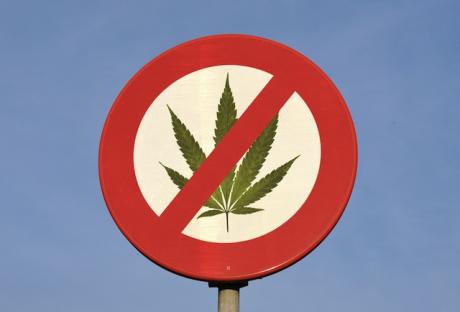Conservative think tank The Bow Group speak out against legalisation and regulation of cannabis after the Liberal Democrats announce their manifesto commitments.
While the Liberal Democrats have said they want to implement full regulation of cannabis that would allow it to be sold in shops, be grown and shared in Cannabis Social Clubs, made more available as a medicine and even regulated in strength, the policy has met backlash from all factions of the major political parties, including supporters of the party closest to centre of the political spectrum.
Part of the promise of regulating cannabis to the voting public is the enormous cash injection that it can put into the economy by harnessing the tax that is currently being gifted to organise crime. It comes in at around £1.25bn a year and that is, excuse the expression, a conservative estimate.
But it seems like the Conservatives have been doing too much estimating and not enough actual research when it comes to cannabis and having an opinion on the subject. After all it is worth commenting on, defending against even – when it’s a policy that saw the Conservatives knocked out of Canadian Parliament just last year. They aren’t just against legalisation though, they want to completely eradicate cannabis!
“The evidence couldn’t be clearer. Cannabis is a hugely damaging drug that causes misery, particularly for our poorest citizens. Our aim should be its eradication and that can never be achieved through legalised capitulation.”
No mention there of the outrageous and immeasurable damage that the policy of prohibition has caused poorer communities, where prohibition has allowed criminal gangs to exploit people over basic plant matter. No mention either of the cost gangs put on cannabis, or the fear they emit in their territories that used to be areas of pleasant residence.
You would expect a think tank to do some fact-based research, to cite evidence to support their claims (if they are to be taken seriously at all by anyone other than themselves), so it is rather surprising that The Bow Group, who claim to be “the oldest” conservative think tank, get a bit lazy at this point and just list off any study they can find that says something bad about cannabis consumption, not thinking about what they are posting critically enough. Clearly, they still prescribe to the old school of thought that they had when they were founded in 1951 and no one had the internet to quickly google to see if what they are being told holds any factual weight. Half the evidence is picking apart quotes from scientists and MPs that support and campaign for reform on an academic level.
Even when they do look at the evidence to support reform and it’s staring them straight in the face they *think* that it’s something they can use as an argument for maintaining and even ramping up prohibition.
“According to a report published last November by the Adam Smith Institute, our drug policy is: ‘An embarrassment.’ (Laven-Morris, 2016, para. 1) Commenting on the report, Steve Moore, Director of ‘Volteface’ concurred, insisting that: ‘The global movement towards legalisation, regulation and taxation of cannabis is now inexorable.’ (Laven-Morris, 2016, para. 16) While this supposed ‘inexorability’ may have political and social elites jumping for joy, it’s yet another step toward greater suffering for those vulnerable individuals at risk of damage from the mind-altering drug, as well as for families and communities who are, and will increasingly, be forced to pick up the pieces.”
They get quite good at using their own evidence against themselves as the document goes on, but this is just the first attempt at using peer reviewed reports to shoot themselves in the foot.
Think Tank or Jump To Conclusions Tank?
Let’s take a quick look at the short retort that The Bow Group took the time to post up on their 1951 style website.
– Despite some people’s beliefs, cannabis does real harm to most of those who use it.
– Cannabis does lead to usage of more extreme drugs.
– The potential revenue from legal cannabis is not worth the social and human cost.
– Cannabis unfairly harms working-class people more than those who are better off.
– British public opinion is far from sold on the idea of legalisation, especially those in the portion of society who are hit the hardest by that drug.
– The author makes proposals for the definite eradication of its use.
Most of what they post in their PDF is opinion based on reaction to people that hold different views to David Sergeant the writer.
“a huge American study, utilising the latest technology in brain-scanning equipment discovered that cannabis users had: ‘abnormally low blood flow in virtually every area of the brain.’ This means that users are at considerably higher risk of developing diseases such as Alzheimer’s.”
What they don’t read and which is clear from the abstract is that the study was specifically on chronic cannabis consumers that had been identified or diagnosed with Cannabis Use Disorder – indicating that this is not something you can transpose to healthy people consuming cannabis on an occasional basis. If we suddenly see an increase in Alzheimers among those using cannabis at medicinal levels (daily doses for a chronic illness are equal to several hundred mg of cannabinoids) then we know that this is something to be concerned about.
But they must have missed this study on Alzheimer’s which is sad because most of the people in The Bow Group are at the age where Alzheimer’s is likely to be an issue for them or a partner.
“Cannabinoids can help remove dangerous dementia proteins from brain cells, researchers say”
And then David Sergeant even tries to use pro-cannabis reform advocates as an example of why we should continue to criminalise people for using cannabis, continue gifting the market to organised crime untaxed, and continue letting dealers sell to children because that requires no ID.
“Even Professor Nutt, a well-known proponent of legalisation, concedes that cannabis smokers are ‘2.6 times more likely to have a psychotic-like experience than non-smokers.’”
Read that again “psychotic like symptoms” – think about it, research it. Compute. Understand. Not psychosis, not schizophrenia. Psychotic like. This means it is acute and no lasting damage is done. We do know that treating people and telling them that they are mental constantly has a negative effect on anyone – you don’t have to be a cannabis user to suffer mental abuse from family or the state because of the propaganda surrounding cannabis use. This is not something that legal recreational states in the US have an issue with – just prohibition Britain.
Then they try and prove the Gateway Theory – like it’s still 1985. Even D.A.R.E the drug program in the US that was aimed at keeping kids off drugs (but actually encouraged kids to go and try them) has dropped the notion that cannabis is a gateway drug. It is widely accepted that cannabis being in the same market place as other illicit substances is what leads people on to buying other illicit substances. If you sell cigarettes in pubs people who want to buy a cigarette in a pub are going to buy them there. Separating cannabis from the rest of the drug market is going to reduce the amount of other drugs people take or buy because you are closing the door to a poly drug market that cannabis is part of.
Trying to bolster claims of the gateway theory they claim that Amsterdam cannabis consumption is much greater than the rest of the Netherlands (15% use nationally up to 36% in the city). But if you have ever been to the Netherlands and Amsterdam you can see that there is a fundamental difference in the way of life between the two parts. Amsterdam is a metropolitan city with international businesses, tourism and, dare I mention it, 300 coffeeshops. No wonder cannabis consumption is higher. People literally book flights to the city, stay in expensive hotels and pay 2-3 times the price they would pay for weed at home because they can do so in a place that tolerates it. Talk about cherry picking. This is the Conservatives oldest and self-proclaimed most prestigious think tank, and yet you can see the flaws in this in minutes – imagine the flaws in the rest of the policy they find need to comment and impose their unprofessional opinions upon.
It all comes back to the kids really though. “One in five young people that use cannabis go on to have anxiety and depression”. If young people having access to cannabis is an issue let’s regulate. It really is that simple. School teens in recreational states have reported that access to cannabis is now much harder as you need ID to buy it from a shop, there are fewer dealers because the legal product is better, and as a result of being sold in shops adult consumers are able to be told “keep this out of the sight and reach of children” when they make their purchase. Education is the key, just like we are not arresting our way out of a tobacco use epidemic in the UK where 78,000 people’s death are directly related to tobacco smoking – 78,000 more than the number of cannabis deaths per year.
Imagine the conversation I’d like to have with David Sergeant or another member of the Bow Group, TV Historian David Starkey for example.
Me: OK well why are young people able to access cannabis?
Bow: Because the dealers are on the streets
Me: So how do we get them off the streets?
Bow: We lock them all up of course!
Me: But we’ve been trying that for years, it is costing so much money we aren’t even putting enough effort in and more people are using cannabis than ever now. Do you not think having age restrictions would allow people selling it to avoid selling it to young people?
Bow: No, because youths can get alcohol too.
Me: How many shares do you hold in alcohol companies?
But I don’t imagine that I would get to have this conversation with people who haven’t got the time to apply critical thinking to their proposals. I’d really like to ask why they think that a healthy person using cannabis would have a more negative reaction to people who use it as a medicine. Cannabis doesn’t decide what you want to use it for, it just works as it works – it can’t make a choice!
Regulation can cover many many things, participation is progress. Complete denial and refusal of the market that exists equates to prolonging the things people dislike about cannabis in society.
Take a read of the pretty desperate attempt to boo boo practical policy ideas that could help regenerate certain demographics in Britain, that Conservatives clearly do not want to see prosper in life.
We are all in this together – the lie that is austerity that is.





